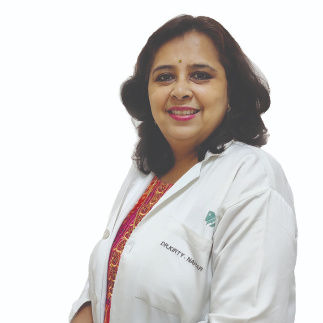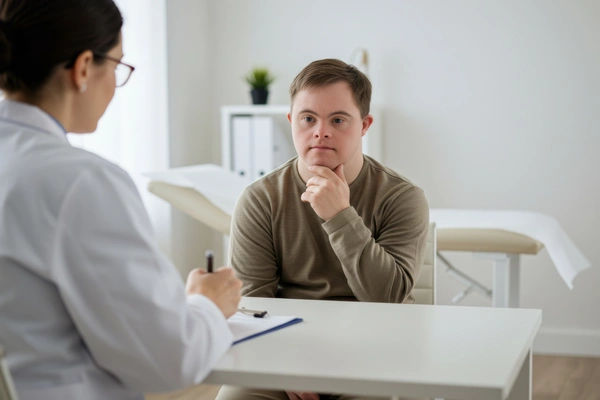Understanding the Full Form of POP in Medicine
Discover the full form of POP in medicine and its significance in healthcare. Understand how POP is used in medical contexts, from contraceptives to orthopedic applications.

Written by Dr. M L Ezhilarasan
Reviewed by Dr. Dhankecha Mayank Dineshbhai MBBS
Last updated on 13th Jan, 2026

When you hear the term POP in a medical context, it might sound a bit confusing. But don’t worry, we’re here to break it down in simple terms so you can understand what it means and how it might relate to your health.
What Does POP Stand For in Medicine?
In medicine, POP stands for Pelvic Organ Prolapse. It’s a condition where one or more pelvic organs (like the bladder, uterus, or rectum) slip down from their normal position and bulge into the vaginal wall. This happens when the muscles and tissues that support these organs become weak or stretched.
While POP is more common in women, especially after childbirth or menopause, it can affect anyone. Understanding this condition can help you recognize symptoms early and seek the right treatment.
What Causes Pelvic Organ Prolapse (POP)?
Several factors can contribute to POP, including:
Childbirth: Vaginal deliveries, especially multiple or difficult ones, can weaken pelvic muscles.
Aging: As women age, hormonal changes (like menopause) reduce muscle strength.
Chronic coughing or straining: Conditions like asthma, bronchitis, or constipation can increase pressure on pelvic muscles.
Heavy lifting: Regularly lifting heavy objects can strain pelvic support structures.
Obesity: Excess weight puts extra pressure on pelvic organs.
Genetics: Some people are naturally more prone to weak pelvic tissues.
Consult Top Gynecologist
Symptoms of Pelvic Organ Prolapse
POP symptoms can vary depending on which organ is affected, but common signs include:
A feeling of fullness or pressure in the pelvic area
A bulge or lump in the vagina (you might feel it when touching the area)
Discomfort or pain during sex
Urinary issues (leaking urine, frequent urination, or difficulty emptying the bladder)
Bowel problems (constipation or difficulty controlling bowel movements)
Lower back pain
If you notice any of these symptoms, it’s important to consult a doctor. Early diagnosis can help manage the condition better.
How Is POP Diagnosed?
A doctor can diagnose POP through:
1. Physical Examination: A pelvic exam helps check for any bulging organs.
2. Medical History Review: Your doctor will ask about symptoms, childbirth history, and lifestyle factors.
3. Imaging Tests: In some cases, an ultrasound or MRI may be needed to assess the severity.
Treatment Options for POP
The treatment depends on how severe the prolapse is and how much it affects your daily life. Options include:
1. Lifestyle Changes & Non-Surgical Treatments
Pelvic Floor Exercises (Kegels): Strengthening pelvic muscles can help support organs better.
Weight Management: Losing excess weight reduces pressure on pelvic organs.
Avoiding Heavy Lifting: Minimizing strain on pelvic muscles can prevent worsening.
Pessary Use: A small, removable device inserted into the vagina to support prolapsed organs.
2. Surgical Treatments
If the prolapse is severe, surgery may be recommended to repair weakened tissues or support the organs with mesh.
Prevention Tips
While some risk factors (like aging or genetics) can’t be changed, you can reduce your chances of POP by:
Doing regular pelvic floor exercises (Kegels)
Maintaining a healthy weight
Avoiding chronic straining (treat constipation, quit smoking to reduce coughing)
Practicing safe lifting techniques (bend knees, not waist)
When to See a Doctor?
If you experience any symptoms of POP, don’t ignore them. Early intervention can prevent complications and improve quality of life.
Need expert advice? You can book a consultation with a gynecologist or urologist through Apollo 24|7 for personalized care.
Conclusion
Pelvic Organ Prolapse (POP) is a common but manageable condition. Understanding the symptoms, causes, and treatment options can help you take control of your health. If you suspect you might have POP, don’t hesitate to reach out to a healthcare provider for guidance.
Consult Top Gynecologist
Consult Top Gynecologist

Dr. Harmeet Malhotra
Obstetrician and Gynaecologist
44 Years • MBBS, MD, DGO, FICOG
Delhi
Apollo Hospitals Indraprastha, Delhi
(25+ Patients)

Dr. Sushith C
General Physician
2 Years • MBBS
Bengaluru
PRESTIGE SHANTHINIKETAN - SOCIETY CLINIC, Bengaluru

Dr. Sunabha K Ghosh
Obstetrician and Gynaecologist
9 Years • MBBS, MS (Obstetrics & Gynaecology), DNB (Obstetrics & Gynaecology), MIAGE, RCOG Associate [UK]
Kolkata
Gajanan Multispeciality Clinic, Kolkata

Dr. Sreeparna Roy
Obstetrician and Gynaecologist
8 Years • MBBS , MS (OBSTETRICS & GYNAECOLOGY), Fellowship in Infertility, Endoscopy & Ultrasonography), Fellowship in Laparoscopy & Hysteroscopy,DRM
Kolkata
Dr Utsa Basu Clinic, Kolkata

Dr. Kirty Nahar
Obstetrician and Gynaecologist
25 Years • MBBS, M.S. Obst & Gynaecology, FICOG. Fellowship Obstetrics & Gynaec. Ultrasound ISUOG Certified Sonologist. High Risk Pregnancy & Infertifilty Specialist. Sr. Consultant - Obst & Gynaecology.
Ahmedabad
Apollo Hospitals Gandhinagar, Ahmedabad




